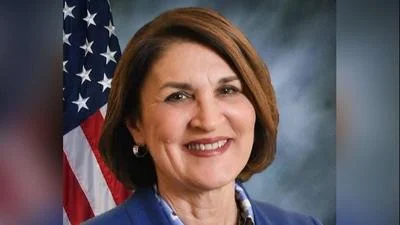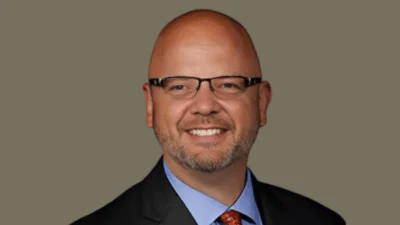Illinois state Sen. Steve McClure (R-Springfield)has represented the state's 50th Senate District since he was sworn in in January 2019. | facebook.com/senstevemcclure
Illinois state Sen. Steve McClure (R-Springfield)has represented the state's 50th Senate District since he was sworn in in January 2019. | facebook.com/senstevemcclure
Putting an end to unnecessary spending is the only way to resolve Illinois' still-growing pension crisis, but if things continue as they are, that isn't likely to happen, a Springfield Republican state senator said during a recent interview.
Sen. Steve McClure (R-Springfield) told Sangamon Sun that, if current political practice doesn't change, he sees no path to a successful pension plan that doesn't somehow leave tax payers holding the bag.
"There's no accountability now and that's a big part of the problem," McClure said. "One aspect no one is talking about is the money coming from the federal government and how much that can impact what the state does. By my calculations, they've spent that money many times over. Even when we get help, the leaders here don't seem to know how to take care of it."
Fixing the problem would involve no more "irresponsible spending on unnecessary things," McClure said, and then referred to "all kinds of unfunded mandates and massive expenditures that we can't afford to undertake" that have happened over the last few months.
McClure has represented the state's 50th Senate District since he was sworn in in January 2019 after running unopposed during the General Elections the previous November. The 50th Senate District includes all of Calhoun, Greene, Morgan, Pike and Scott counties, and portions of Macoupin, Madison, Jersey and Sangamon counties.
The direness of the shortfall in the state's pension plans was spelled out in a Wirepoints report release earlier this month. The report released Nov. 17 found that Chicago and Cook counties' pension and retiree health shortfall were $122 billion. State pension obligation bonds' shortfalls stood at $9 billion. State retiree health insurance shortfalls had hit $55 billion by the time the report was released, and it noted that taxpayers in the state are on the hook for a total of $530 billion in debts.
"While Wirepoints uses Moody's debt estimates as the standard in this report, we also report the state's official numbers for comparison purposes," the report said. "Illinois' official calculations also reached a negative milestone of their own this year: state and local retirement debts crossed the $300 billion mark in 2020. Any way you cut the numbers, retirement debts are reaching record levels in Illinois."
How Illinois got to this point isn't difficult to suss out and the solution is clear enough but the state Legislature's Democrat majority is showing no motivation to resolve the issue, McClure said.
"Very bad financial decisions being made and people are not getting value for their tax dollars," McClure said. "People in the majority need to recognize the problem and need to start to fix the problem."
Instead, they're acting "like there is unlimited money," McClure continued. "We're in this situation because of all the bad decisions."





 Alerts Sign-up
Alerts Sign-up